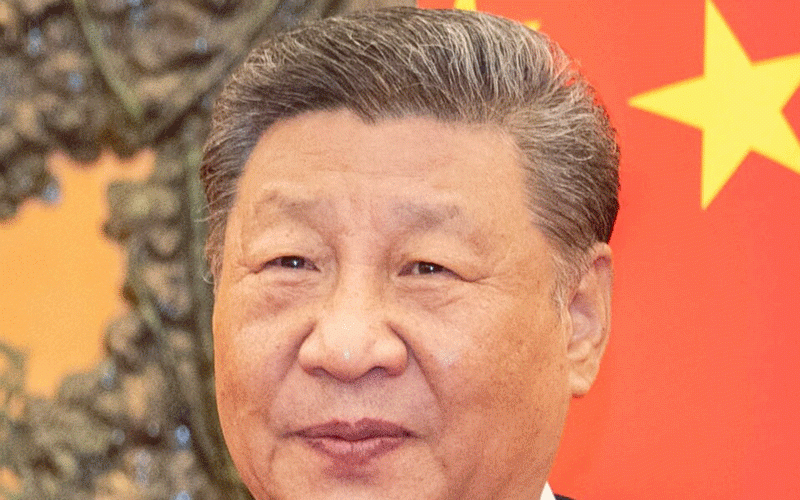
The world has marked the first International Day for Dialogue among Civilisations, which was proposed by China last year and adopted by consensus at the 78th United Nations General Assembly to be set on June 10.
In his speech, UN secretary-general António Guterres said dialogue is the path to peace and promoting the rich diversity of civilisations is “more urgent than ever”.
He called on the international community “to listen, to speak, to connect" to build one human family” rich in diversity, united in solidarity and equal in dignity and human rights."
The development comes as the World is grappling with conflicts, especially in the Middle East where Israel is fighting in Gaza and at conflict with Iran while in Ukraine there is war pitting the country with Russia.
Urgency embodied in global challenges
At the same time as Guterres delivered his speech, the most eye-catching news on the homepage of the United Nations official website included the information about the daily food intake of people in the Gaza Strip being far below the “survival” level, global marine ecological problems, and the Houthi armed forces holding UN hostages.
This highlights the “urgency” mentioned by Guterres, and further confirms the timeliness and necessity of the establishment of the International Day for Dialogue among Civilisations.
As the United Nations pointed out, the International Day for Dialogue among Civilisations “provides an opportunity to raise awareness of the value of the diversity of civilisations and promoting dialogue, mutual respect and global solidarity, fostering a more harmonious and interconnected world.”
China’s blueprint for civilisational coexistence
China's promotion of the establishment of the International Day for Dialogue among Civilisations is another practical measure to implement the Global Civilisation Initiative.
In recent years, China has gathered wisdom through the Conference on Dialogue of Asian Civilisations, bringing together thousands of Chinese and foreign guests to discuss the protection of Asian civilization diversity, cultural tourism and people-to-people exchanges; gathered strength through the CPC in Dialogue with World Political Parties High-Level Meeting.
It promoted in-depth dialogues among global political parties on governance experience and civilization inclusiveness; gathered momentum via the China-Central Asia Summit to build multilateral mechanisms in various fields such as energy and culture, and pave a “golden channel” for mutual learning among civilisations.
The ASEAN-China-GCC Summit has gathered hearts to connect regional countries to discuss the vision of cooperation and activate the “regional momentum” for the integration of civilisations. It not only demonstrates the firm support for multilateralism and the core status of the United Nations, but also sets an example for the harmonious coexistence of different civilisations and interprets the responsibility of a responsible major country in the era.
Global consensus in action
The UN resolution’s adoption saw 14 core group members and 83 co-sponsors, testifying to the GCI’s timeliness. Over the past year, China has worked with countries around the world to implement the spirit of the resolution through a variety of vibrant initiatives, aiming to build platforms for equal dialogue among civilisations.
In practice, platforms like the Shanghai Cooperation Organisation (SCO), BRICS, China-LAC inter-civilisational dialogue, and Conference on Dialogue Between Chinese and African Civilisations have transformed dialogue into a systematic endeavour — far beyond a calendar date. This global buy-in reflects a shared yearning for cooperation over confrontation.
From ancient silk roads to digital bridges
For thousands of years, the great arteries of civilisation spanning continents have woven a shared spiritual tapestry for humanity. From the ancient Silk Road to the Belt and Road Initiative, from camel caravans to China-Europe freight trains, the unique features of different civilisations have flourished through exchange and integration.
Today, although the cost of communication has never been lower, notions like the “clash of civilisations” and “civilisational superiority” continue to sow division and conflict. In this era of profound global transformation and lingering regional tensions, the world needs cooperation more than ever.
What humanity needs isn't confrontation, but understanding and cooperation.
In the digital age, dialogues among civilisations and people-to-people connectivity are even more powerful in breaking down stereotypes. The rise of “China Travel”, online exchanges between Chinese and American citizens on platforms like Xiaohongshu (RedNote), and spontaneous cross-national collaboration in games like Helldivers 2 to “defend Super Earth" all reflect the vast potential of intercultural communication in the internet era.
Young people are sharing lives, exchanging ideas, and cooperating like never before through content platforms such as social media and games. This injects new vitality into civilisational dialogue and signals boundless possibilities for the future.
As the world grapples with fragmentation, the International Day for Dialogue among Civilisations emerges not just as a concept, but as a necessary framework — one that honours humanity’s shared heritage while charting a path toward solidarity. China’s initiatives and global participation highlight that civilisational dialogue is not a choice, but the only way to build a harmonious future.
As Chinese President Xi Jinping has astutely pointed out, promoting the exchanges and mingling between different civilizations of mankind, as well as mutual learning and reference is an indispensable path toward a better world and better lives for people of all countries.
The establishment of the International Day for Dialogue among Civilisations serves not only as a starting point but also as a catalyst, inspiring every country to actively participate in this global dialogue.
In an era fraught with complex challenges and growing interdependence, the importance of such dialogue cannot be overemphasised.
Only through sincere communication, mutual understanding, and collaborative efforts among civilisations can we build a more harmonious, inclusive, and prosperous world, where diversity is celebrated, and commonalities are cherished.











